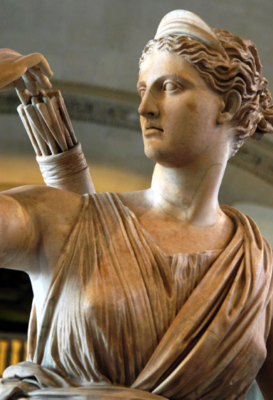

She is often associated with mythic qualities (such as "maidenhood" and "purity") and even non-Greek origins. Etymology often gives modern readers a better idea of the earliest form of a deity, but Artemis's is confusing. Her association with nature may also explain why she was one of the oldest deities in the Greek pantheon, although her appearance in the Mycenaean Linear B script is still contested. Cautioning the merchants to eschew piracy and ‘keep righteousness’ in their hearts, while simultaneously confronting and sequestering them captures the youthful god’s capricious character quite well.Artemis had one of the most widespread cults in the Greek world, perhaps due to her connection to nature, which can be a ubiquitous antagonist or boon-giver. After terrifying the merchants, he tells them that their lives in the sea trade are over, and they are to be priests at his temple from then on.

Rather than depend upon those ‘glorious tribes’ to supply his temple with sycophants, Apollo has no patience for chance, and flies down to a Cretan merchant ship, landing on it in the form of a timber-shaking dolphin. Once he lands upon a place of his liking, however, he realizes that he needs to populate it with priests who would ‘guard’ and care for its ceremonies. The quote comes from the end of an episode in which Apollo is traversing the known world, looking for a place to build a temple to himself. This notion is also illustrated in the above quote from the 6th century BCE Homeric Hymn to Apollo, which gives the reader a brief glimpse into the confusion surrounding Apollo’s multi-faceted nature.

“Apollo’s history is a confusing one,” said the renowned poet and mythologist Robert Graves.


 0 kommentar(er)
0 kommentar(er)
